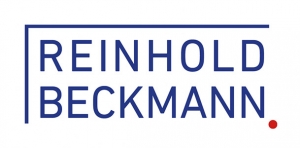Democrats and Republicans join forces against Googles, Amazon & Co.
The story around the American Innovation and Choice Online Act
If you follow the political development in the USA in recent years, you can see a deep split in the political landscape between the Republicans on the one and the Democrats on the other hand. It seems almost impossible to imagine how these two parties, which are fighting each other on all levels, could pass a united law. In the last week of January 2022, the U.S. Senate Judiciary Subcommittee passed the American Innovation and Choice Online Act bill by a majority of 16 to 9, with votes from both the Democrats and Republicans.
This bill is one of several legislative initiatives which wants the U.S. Congress to limit the power of dominant IT companies. These legislative measures were triggered by an investigation by the U.S. House of Representatives into the business practices of so-called “gatekeepers” and their impact on competition.
What is the regulatory content of the American Innovation and Choice Online Act?
This legislative initiative specifies that companies above a certain size may no longer give preferential treatment to their own offerings, e.g., competitors may not be arbitrarily denied access to trading platforms. It is also to be prohibited to use non-public data that accumulates when using their services, for example, to launch a similar product on the market and then favor it over others in search results or recommendations.
Intense Lobby-battle until the end
Many small IT companies urged the members of parliament to adopt the law. For example, search engine operator DuckDuckGo, browser manufacturer Brave and the anonymization project TOR had pointed out in an open letter that the large Internet corporations were using their gatekeeper status in the market to the disadvantage of open competition, consumer interests and to block innovation.
With immense effort from the lobby departments of the large companies concerned, they tried to the very end to make the vote fail.
Google, for example, argues that the law would endanger the technological leadership of the USA, as well as the security and the privacy of its users.
Amazon warns of collateral damage that would affect small and medium-sized businesses, as well as consumers.
Apple CEO Tim Cook, on the other hand, is said to have personally picked up the phone to lobby lawmakers. None of this has had any effect. Despite serious misgivings, Californian senators, who are traditionally hostile to legal intervention in Silicon Valley, voted in favor of the law. Five Republicans also joined the bipartisan initiative.
The end of unlimited opportunities for Internet corporations?
The four big tech companies: Google, Amazon, Facebook and Apple have been able to profit from a largely unregulated landscape in recent decades. The political realization that drastic changes in the law are urgently needed in view of the considerable dangers to free competition, consumer protection interests and the safeguarding of innovations seems to be slowly maturing here. This is also and especially necessary to ensure that the respective state sovereignty against these international monopolies does not deteriorate any further.
In this context, the almost simultaneous legislative initiative of the EU on the European Digital Markets Act (Digital Services Act), which contains similar regulations, should also be mentioned. More on this in my next Shout-Out.
This post is also available in: German


